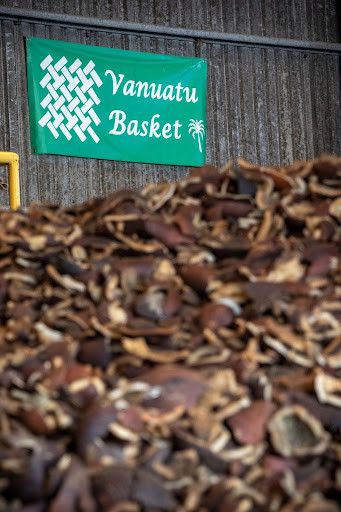VIMB Expands Rural Infrastructure and Jobs Through Strategic Citizenship Investments

In a world where wealth buys access, the concept of "citizenship by investment" has often drawn criticism for fueling global inequality, commodifying nationality, and enabling the ultra-rich to circumvent borders. Yet in the Pacific archipelago of Vanuatu, one government-designated agent is rewriting that script—not by selling privilege, but by converting investor contributions into rural infrastructure, jobs, and long-term national assets.
VIMB Services Limited, led by Managing Director Daniel Agius, is emerging as the architect of what some in the region call a "citizenship model that gives back." Through the Capital Investment Immigration Plan (CIIP) and its flagship vehicle—the CNO Future Fund—VIMB is channeling millions of dollars in investor capital into neglected agricultural communities and renewable energy infrastructure.
This is more than marketing spin. In its first full year of operation, the fund processed 144 citizenship applications, raised $7.2 million in investment, and generated over $9 million in direct government revenue. But perhaps more critically, it has delivered tangible benefits to some of Vanuatu's most vulnerable regions—benefits that are beginning to alter the national development trajectory.
Post-Earthquake Resilience Meets Economic Innovation
Vanuatu's citizenship programs were paused for over three months in early 2025 as the government undertook a sweeping audit of CIIP agents. The result was a dramatic regulatory overhaul: stricter due diligence, a five-year lock-in period for investments, and mandatory quarterly and annual reporting from designated agents. Only a handful of firms emerged from the review with full compliance status.
"The regulatory reforms weren't a hurdle—they were a validation of everything we've built," said Agius. "We designed the CNO Future Fund to be sustainable, transparent, and high-impact from day one."
As other agents stumbled or folded, VIMB doubled down. And then, in December 2024, disaster struck. A magnitude-6.8 earthquake devastated infrastructure in Port Vila and beyond, crippling logistics, mills, and coconut production facilities. Instead of scaling back, the CNO Future Fund used the moment to demonstrate its resilience and its purpose.
By Q1 2025, more than 70% of affected operations had resumed. Four new trucks had arrived to service rural routes, and over 55 new jobs had been created in logistics, milling, and plantation management. The fund's investments helped reopen aggregation hubs on Malekula and Ambrym islands, which are now serving as central nodes for processing, drying, and exporting coconut products.
From Copra to Clean Energy
The heart of the fund's strategy is coconut oil, specifically, converting copra (dried coconut kernel) into a viable source of clean energy. The CNO Future Fund's vision is aligned with Vanuatu's national goal of achieving 100% renewable energy by 2030. With state-of-the-art equipment and partnerships with local producers, the fund is driving a transition from raw commodity exports to a vertically integrated, value-added supply chain.
As of Q1 2025, monthly production surpassed 230 tons, enough to power two 1MW base grid generators already acquired by the government. The roadmap includes the construction of additional mills in Santo and Malekula to ensure decentralization and seismic redundancy—lessons hard-learned from the December quake.
Beyond electricity, the fund is also exploring coconut water bottling, copra meal exports to New Zealand, and revaluing dormant plantations into high-value timber. Its 30% equity stake in Vanuatu Baskets—the country's leading coconut oil producer—has further anchored its role in economic diversification.
Financial Discipline, Social Return
According to amended CIIP regulations, each designated agent must invest $50,000 per application into an approved fund. That investment must remain unencumbered, personally funded, and held in-country for a minimum of five years. To qualify, funds must submit detailed reports including financials, operational charts, and proof of employment and local spending.
VIMB not only meets these standards; it exceeds them. Its Q1 2025 investor report details expenditures on replanting programs, mill upgrades, and earthquake recovery. Insurance claims totaling over 65 million Vatu are being reinvested into plant restoration. Over 65 rural bank accounts have been opened for new employees and producers.
"This isn't just about mobility or tax efficiency," Agius noted. "It's about leaving something behind—something real."
The fund's expansion into the kava and cocoa sectors further amplifies its role in community-driven development. Processing centers are being planned with end-to-end supply integration to enable local producers to export value-added goods, not just raw crops. These aren't isolated CSR gestures; they are systematic investments designed to build national resilience and inclusive growth.
The Politics of Trust
To critics of citizenship-by-investment schemes, Vanuatu's model has long stood on precarious ground. Concerns over due diligence, international scrutiny, and transparency have haunted the program since its inception. The government's regulatory crackdown and subsequent endorsement of only a handful of agents—including VIMB—has changed that equation.
With the CIIP now anchored in law, compliance enforced, and investments traceable, the program's future and VIMB's role in it look stronger than ever.
Still, challenges remain. The success of the CNO Future Fund depends on continued investor interest, geopolitical stability, and the ability of the government to maintain oversight without politicizing the program. But if the past year is any indication, VIMB has found a formula that works: one rooted not just in passports, but in people.
"When you tie citizenship to responsibility and outcomes," said Agius, "you're not just offering access. You're building futures."
© Copyright IBTimes 2024. All rights reserved.





















